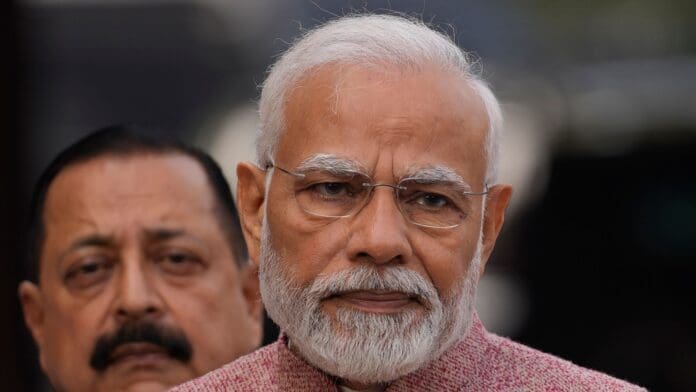Prime Minister Narendra Modi is anticipated to devise multiple strategies to counter an opposition coalition that perceives they stand a chance in the forthcoming 2024 general elections, potentially ending his two consecutive terms of governance. However, fears linger that Modi might resort to tactics that could polarize the Hindu electorate, like a potential terror strike on the under-construction Ram temple in Ayodhya.
Two renowned political voices, veteran attorney Prashant Bhushan and the past governor of Jammu and Kashmir, Satyapal Malik, have expressed apprehension over such an incident in Ayodhya to ensure a favorable outcome for Modi.
The opposing coalition, named INDIA (Indian National Development Inclusive Alliance), represents a notable hurdle for Modi. While many of its members were adversaries at the state level, they now stand united. The recent reinstatement of Congress leader Rahul Gandhi in the parliament, post a supreme court ruling against his previous conviction, amplifies the coalition’s momentum.
The INDIA alliance underscored that Rahul Gandhi’s re-entry bolsters the opposition, fortifying their commitment to uphold the nation’s secular fabric and shield minority rights against any majoritarian aggression.
Derek O’Brien, a parliamentarian from West Bengal’s governing Trinamool Congress and spokesperson for the INDIA alliance, highlighted their emphasis isn’t on proposing a prime ministerial contender but on safeguarding the constitution and countering vested corporate interests. Their objective is to challenge the system that favors certain industrialists who have been vocal supporters of Modi, including Gautam Adani.
In spite of Modi’s significant backing from corporate magnates like Adani, indications hint at the opposition’s potential to perform well in regions like Maharashtra and Uttar Pradesh, clinching a dominant share of Lok Sabha seats. In Maharashtra, events such as senior opposition figure Sharad Pawar lauding Adani and publicly acknowledging Modi haven’t dampened the coalition’s electoral hopes.
Intra-alliance reconciliation is also on the agenda, as evident from collaborations between the Aam Aadmi Party and Congress in regions like Punjab and Delhi, where they stand united against legislative measures that might diminish the Delhi government’s authority. In West Bengal, left-leaning factions and the government helmed by Mamata Banerjee are bridging their divides.
The opposition’s confidence is soaring regarding their chances against Modi in the approaching elections. Though Modi’s past maneuvers successfully sidestepped the opposition, there’s growing wariness about his propensity to capitalize on polarizing situations to steer public sentiment. Modi’s tenure as Gujarat’s chief minister, for instance, saw him harness events like the Godhra train tragedy to foment communal discord.
Adding to these apprehensions, Gujarat’s ex-BJP Chief Minister Shankar Singh Vaghela insinuated that the Godhra incident might have been a calculated maneuver by the BJP for electoral gains. Furthermore, occurrences like the Muzaffarnagar riots in 2014 and the 2019 cross-border intervention played into Modi’s nationalist narrative.
As the opposition braces to confront Modi, they must stay vigilant against his potentially divisive tactics. The journey to the 2024 general elections promises to be intense, but the opposition is resolved to consolidate and mount a robust challenge to Modi’s leadership.
